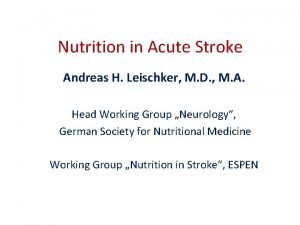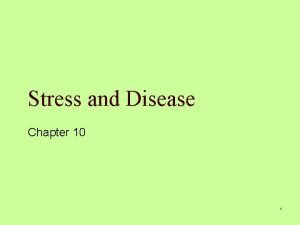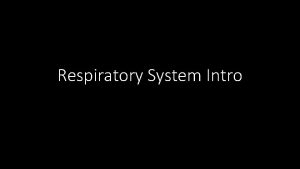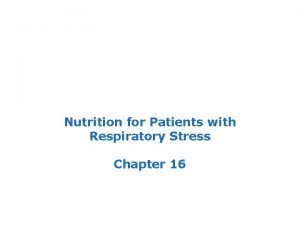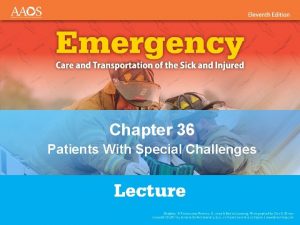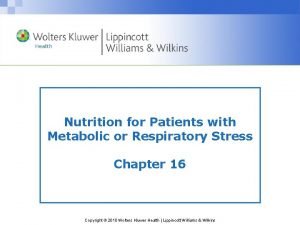Nutrition for Patients with Respiratory Stress Chapter 16






- Slides: 6

Nutrition for Patients with Respiratory Stress Chapter 16

Respiratory Stress • Occurs when gas exchange between the air and blood is impaired • May cause hypermetabolism • When nutritional needs are not met, fewer nutrients are available to maintain respiratory muscle function. • Chronic or acute respiratory stress can lead to – Respiratory failure – Multiple organ failure – Death

Respiratory Stress—(cont. ) • Chronic obstructive pulmonary disease – As many as 60% of patients with chronic obstructive pulmonary disease (COPD) have malnutrition, which is associated with poor outcomes. – Many patients with COPD are hypermetabolic-due to increased breathing rate. – Chronic inflammation increases metabolism and impairs appetite – Anorexia may occur due to anxiety, depression fatigue, changes in taste, excess mucous production, dyspnea, or due decreased oxygen delivery to the GI tract reduced peristalsis and digestion. – Early satiety

Respiratory Stress—(cont. ) • Chronic obstructive pulmonary disease – Early satiety-may be due to flattening of diaphragm and a decrease in abdominal volume or from bloating related to swallowed air-the early satiety also contributes to malnutrition

Respiratory Stress—(cont. ) • Chronic obstructive pulmonary disease—(cont. ) – Nutrition therapy o Correcting or preventing malnutrition is the priority. o High-calorie, high-protein diet is used. o High calorie diet to deal with hypermetabolism o High protein diet to preserve lean body mass and respiratory muscle function o For patients hospitalized with exacerbation of COPD, calorie needs may be 140% above RMR. o Protein need may be 1. 2 g/kg body weight.

Ventilator Dependency and Carbohydrate Restriction • Patients on ventilator support may benefit from a restricted carbohydrate intake. – Carbohydrates produce more carbon dioxide when they are metabolized than do either proteins or fats. – This creates a greater burden on the lungs.
